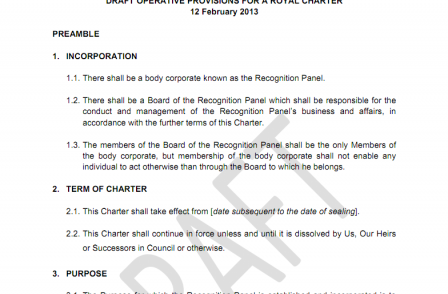
British journalism has been battered by an unrelenting power grab on the part of the country’s political classes. The move to foist an “all-party agreed” infrastructure of regulation by Royal Charter underpinned by punitive statutory sanction is part of a pattern of attack.
The government approved and sponsored Royal Charter is being applied to the British media without its consent and even worse without proper consultation and parliamentary scrutiny. It has not even been debated in the House of Lords.
The process is so iniquitous and dysfunctional it has already attracted challenge by judicial review, injunction and notice of future challenge at the European Court of Human Rights.
It prescribes an unwanted, untried, untested, under-researched system of arbitration for media law disputes mostly paid for by the media whether they win or lose, taking place in secret, and leaving those who opt out with the future burden of punitive legal costs for open justice high court litigation. The all-party Royal Charter, written in medieval doggerel, is an instrument of the privy council that exercises executive sovereign power and policed by legislative political power.
Freedom of the media in the UK is being kicked to pieces – a trend condemned by international NGOs dedicated to campaigning for freedom of expression.
Trial by Leveson
Sir Brian Leveson’s inquiry terms of reference were set by politicians and his assessors were selected by government. The fallout has been intensive problematising of media power. Sir Brian wrongly, in my opinion, kicked the ball of what to do into the politicians' court. He rejected the offer of the most draconian framework of independent self-regulation operating in the western world.

At the same time News International volunteered to the police without court order computer records disclosing identities and information given to journalists on condition of protection of source confidentiality. The journalists and their sources were denied the opportunity to protect their confidentiality before an independent court hearing.
Leveson’s most important and significant recommendation- the statutory enactment of constitutional media freedom has been ignored. The much respected Sir Harold Evans believes it needs to be in place to operate as Britain’s equivalent US First Amendment.
The only body to call for its introduction as a matter of priority is the Institute of Journalists – Britain’s first representative organisation for journalists and ironically in receipt of the first Royal Charter for standards in journalism from Queen Victoria.
Flawed inquiries
The Leveson Inquiry has been a failure because executive power enjoined judicial power with political terms of reference to diminish the democratic power of the media. The same happened with the Hutton Inquiry into the death of Dr David Kelly in 2003.
That inquiry should have investigated the executive’s use of intelligence to propagandise the justification for war subsequently looked into by the Butler and Chilcot inquiries. Instead it became a flawed investigation of editorial decision making by the BBC.
In his last public appearance before his death Dr Kelly said he had learned that he should never have talked to journalists. The same can be said for former detective chief inspector April Casburn who found herself subject to the current fetish on the part of the police to arrest journalists and their sources and prosecute them for “misconduct in public office”.
Her thought crime consisted of a seven-minute phone call to a journalist in which she expressed anxiety that her counter-terrorism duties were being blunted by her colleagues being diverted to the jolly of investigating phone hacking.
Casburn had a distinguished career in military intelligence and police detection dedicated to preventing commuters being blown to pieces in underground trains and buses; something she personally saw in the aftermath of 7/7 in 2005.
An email written by the journalist she spoke to became the evidence that convicted her followed by 15 months imprisonment. But the reporter could not even remember writing the memo at the end of his long overnight shift. She did not even follow-up her call, nor leave her name.
Casburn, and the journalist she spoke to, should have been protected by the European Court of Human Rights jurisprudence inherent in Article 10: freedom of expression. The state denied them that public interest protection.
Press and public interest
In the information age, the media functions beyond the Enlightenment characterisation of a “fourth estate”. Whereas the executive, legislature and judiciary exercise the power of the state in their respective spheres of influence, the media supplies the politico-philosophical algorithm of democratic power.
We have a battle enjoined between the media, justifiably seeing itself as the victim of abuse of power by the state, and well-intentioned campaigners justifiably fighting for the victims of what they see as media corporate abuse of power.
The death of Dr Kelly and the miscarriage of justice of DCI April Casburn represent the intimidation of journalists' sources. Parliament is now poised to further intimidate the media with unwanted and unnecessary regulation. I fear there will be a greater casualty in terms of diminishing liberty and media freedom.
Tim Crook is a reader in media at Goldsmiths University and a member of the Chartered Institute of Journalists ![]()
This article was originally published at The Conversation. Read the original article.
Email pged@pressgazette.co.uk to point out mistakes, provide story tips or send in a letter for publication on our "Letters Page" blog
